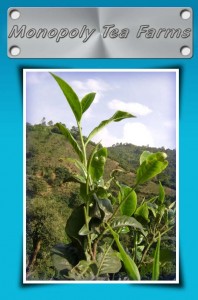Business and Human Rights (142 found)
Analysis of Environmental Impact Study on Hydropower Development of Irrawaddy River
An analysis of key recommendations in the EIA of seven dams on the Irrawaddy and its tributaries in Kachin State which was funded by China Power Investment Corporation.
• • •Report on Tourism in Burma
[…] The Association Info-Birmanie has decided to publish this report in order to bring clarifications to those who consider going to Burma on the ins and outs of the issue of tourism. We consider that the information furnished by the travel agencies only; insisting on Burma’s beauty, the Country “of a thousand and one temples” are insufficient and that it is necessary to have the most amount of information possible in order to decide whether to travel to Burma or not […]
• • •Stop Damming in War-Zones on Burma’s Major Rivers: A Briefer on Conflicts at Dam Sites in Burma
It is impossible to carry out effective community participation in dam projects under this conflict situation. Abuses associated with the fighting such as forced portering and destruction of farmlands directly impacts local communities. Foreign investors cannot follow dam building standards and risk damage to their reputation by contuing these projects […]
• • •Monopoly Tea Farms
 A new briefer on the tea farming crisis in Northern Shan State where the majority of ethnic Palaung people reside. The briefer highlights the monopoly in the tea leaf business by local tea factories, and how the decline in tea price effects the farmer population.
A new briefer on the tea farming crisis in Northern Shan State where the majority of ethnic Palaung people reside. The briefer highlights the monopoly in the tea leaf business by local tea factories, and how the decline in tea price effects the farmer population.
Because of this monopoly, the main source of income of the Ta’ang people is in crisis, and the local population is facing economic, social, educational and health problems. This briefer explains how the residents cannot balance the high price of rice and other basic food with the income earned from their tea farms […]
• • •The Burma-China Pipelines: Human Rights Violations, Applicable Law, and Revenue Secrecy
EarthRights International (ERI) today issued a damning report linking major Chinese and Korean companies to widespread land confiscation, and cases of forced labor, arbitrary arrest, detention and torture, and violations of indigenous rights connected to the Shwe natural gas project and oil transport projects in Burma (Myanmar). The publication, The Burma-China Pipelines: Human Rights Violations, Applicable Law, and Revenue Secrecy, draws primarily on two years of clandestine interviews with affected populations from Arakan State, Magway Division, and Mandalay Division, as well as leaked documents that provide new insight into secretive payments between the oil companies and the military regime, controversial security arrangements, and inadequate corporate due diligence […]
• • •Daw Aung San Suu Kyi Delivers Speech at World Economic Forum
On Thursday, 28 January 2011, Aung San Suu Kyi delivered a special message to political and business leaders attending the Annual Meeting in Davos. “We need investments in technology and infrastructure,” she pleaded, as Burma strives for national reconciliation, political stability and economic growth.
Watch the video here.
• • •Poison Clouds: Lessons from Burma’s Largest Coal Mine Project at Tigyit
The report introduces the coal mine concept at early part followed by detail facts about Tigyi Coal Project. It then explains the on-going human rights abuses and breach of national as the projected was being implemented and how the area is effected by the mining environmentally threatening careers and lives of the residents […]
• • •Tyrants, Tycoons and Tigers
A bitter land struggle is unfolding in northern Burma’s remote Hugawng Valley. Farmers that have been living for generations in the valley are defying one of the country’s most powerful tycoons as his company establishes massive mono-crop plantations in what happens to be the world’s largest tiger reserve […]
• • •Salween Watch (Vol.2)
The latest newsletter from the Salween Watch coalition gives an update on the Thai Prime Minister’s directive to study the impacts of the Hatgyi Dam, a new agreement on the upper Kunlong dam, and China’s plans to build seven new dams in eastern Shan State on tributaries of the Salween and Mekong rivers. There is […]
• • •Total Impact 2.0: A Response to the French Oil Company Total Regarding Its Yadana Natural Gas Pipeline in Military-Ruled Burma (Myanmar)
This detailed and fact-based report refutes Total’s public response to ERI’s previous report, Total Impact. It finds that while the company may be softening to criticism and to the idea of engagement with a nongovernmental organization such as ERI, it has yet again misled the general public, investors and policymakers regarding the impacts of their […]
• • •
 All posts
All posts